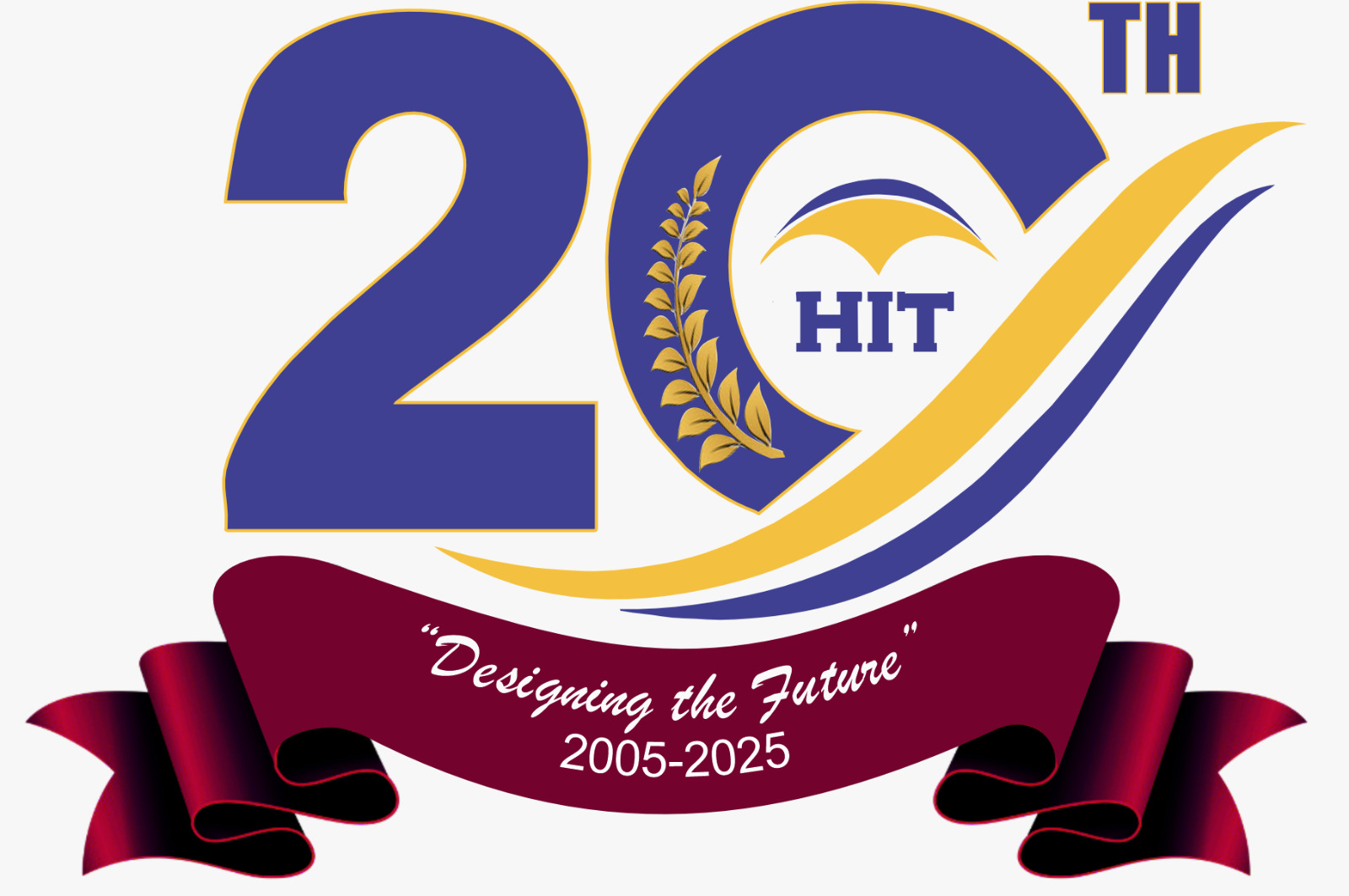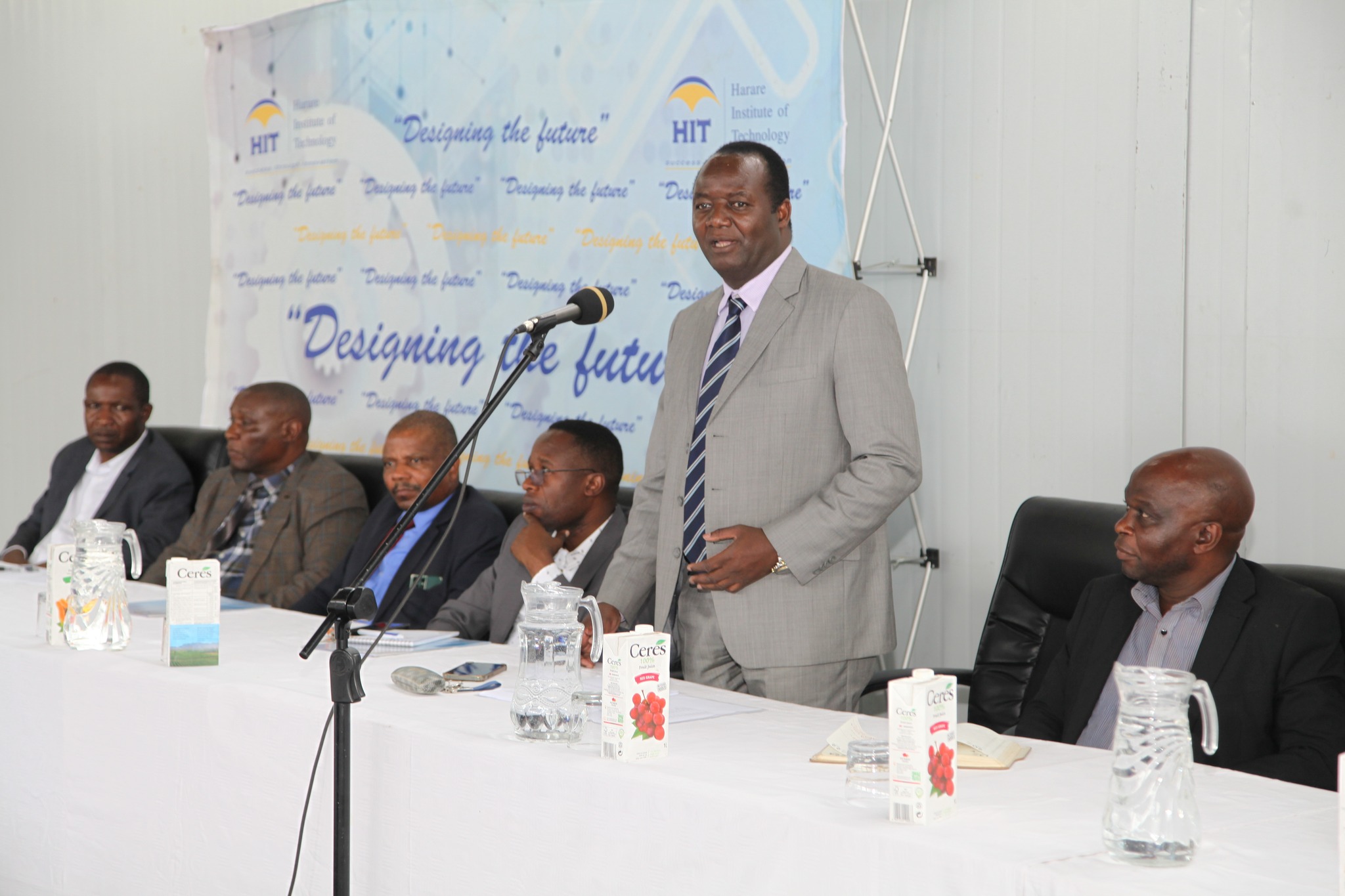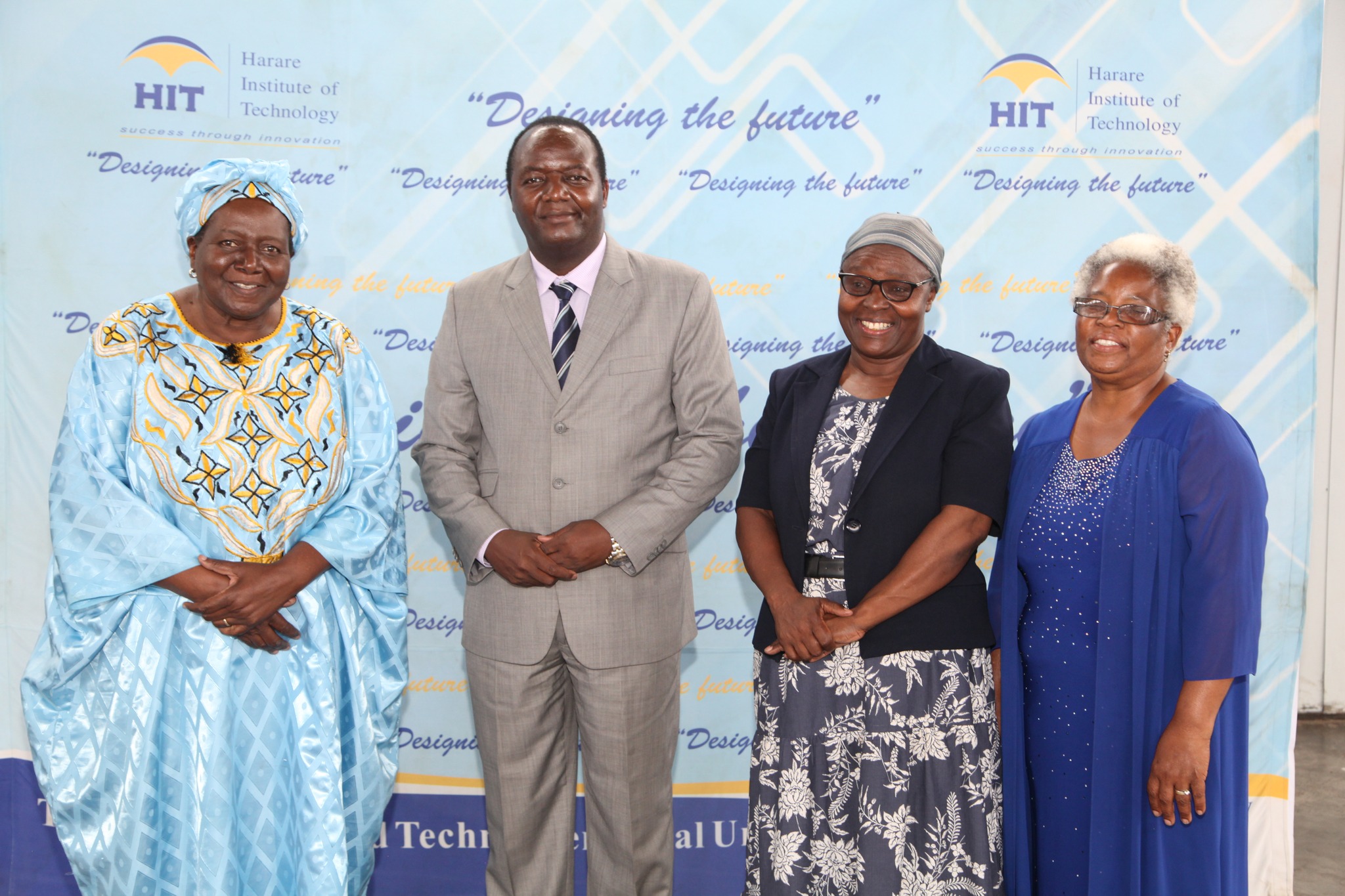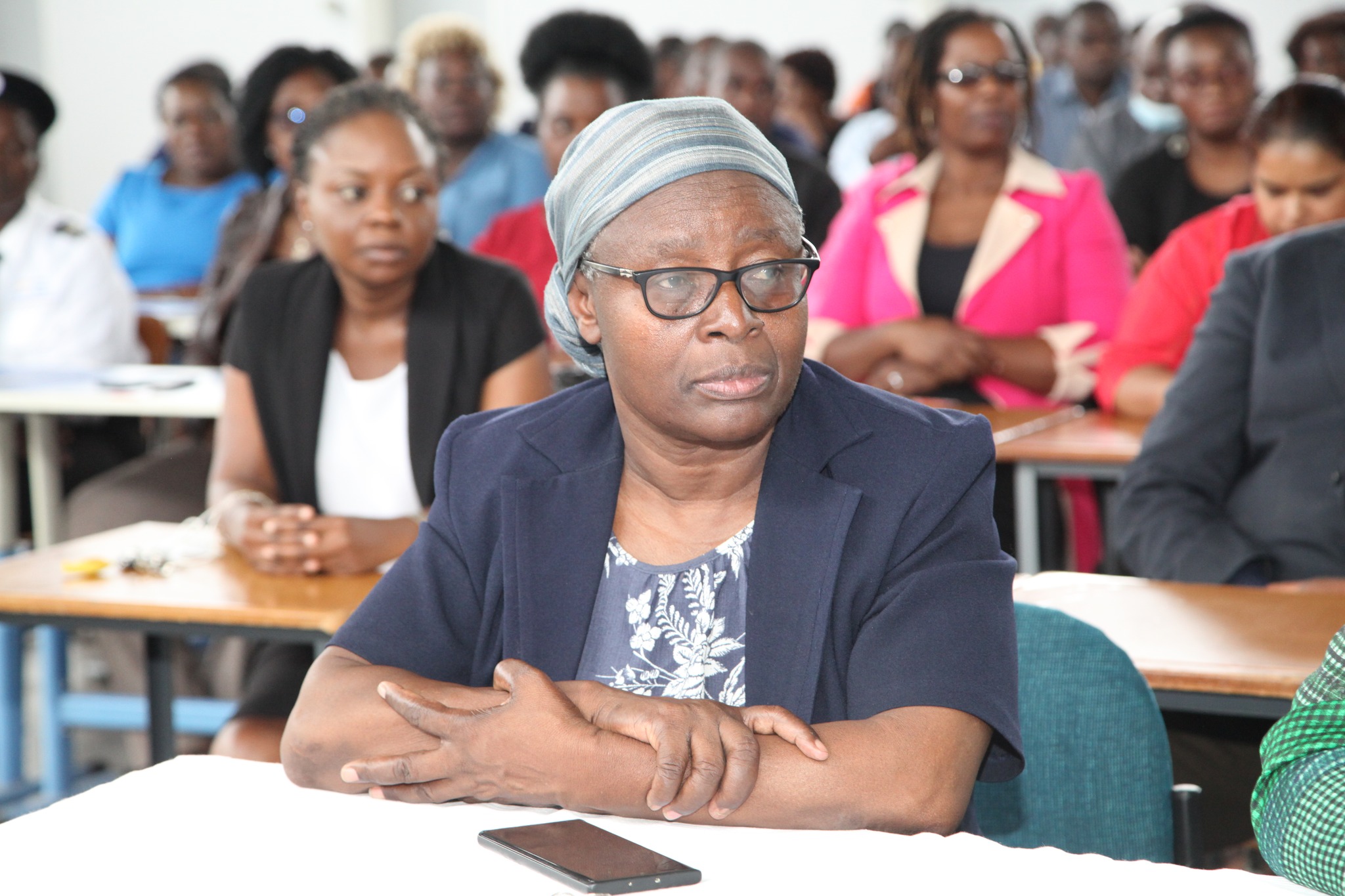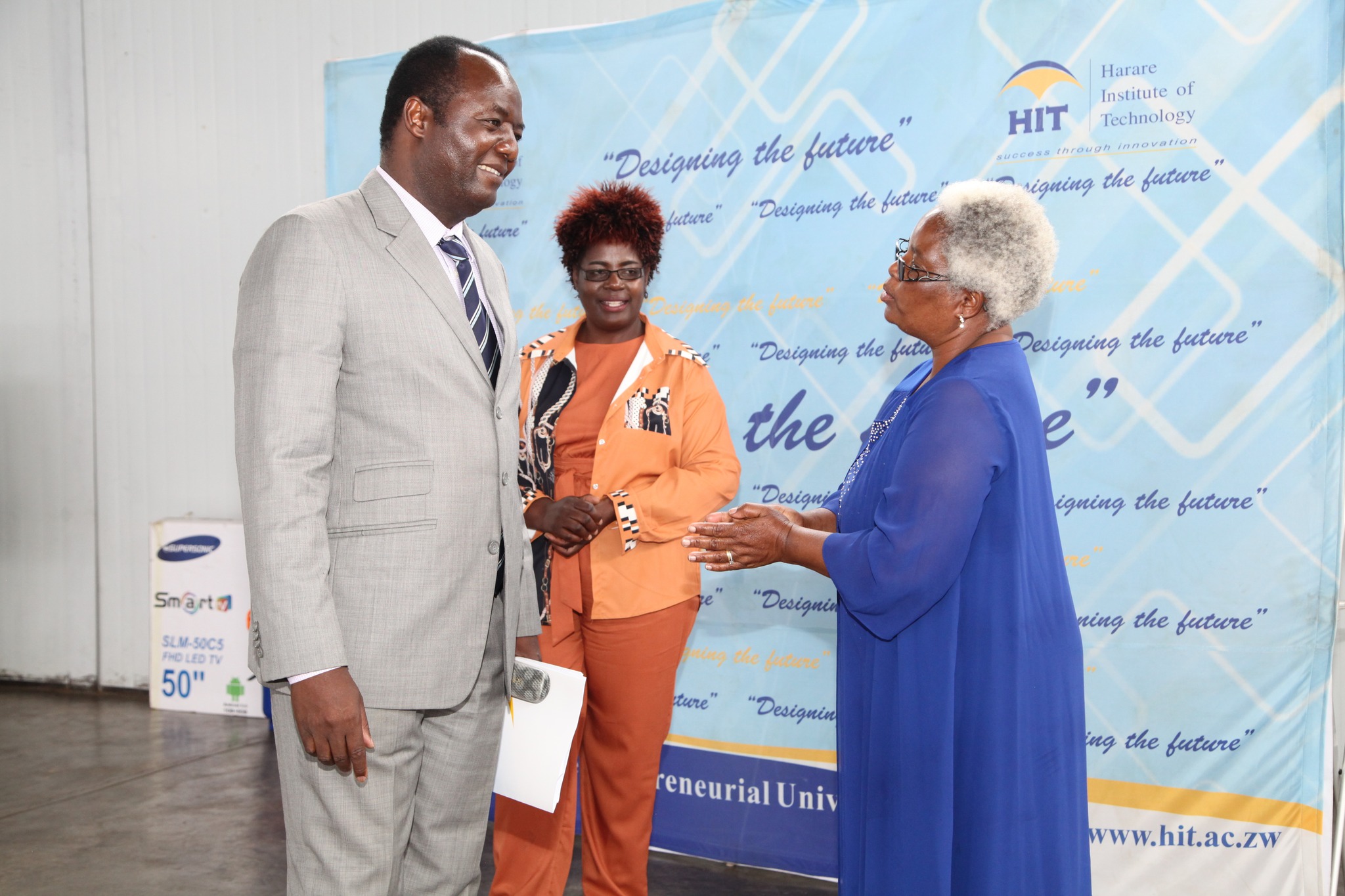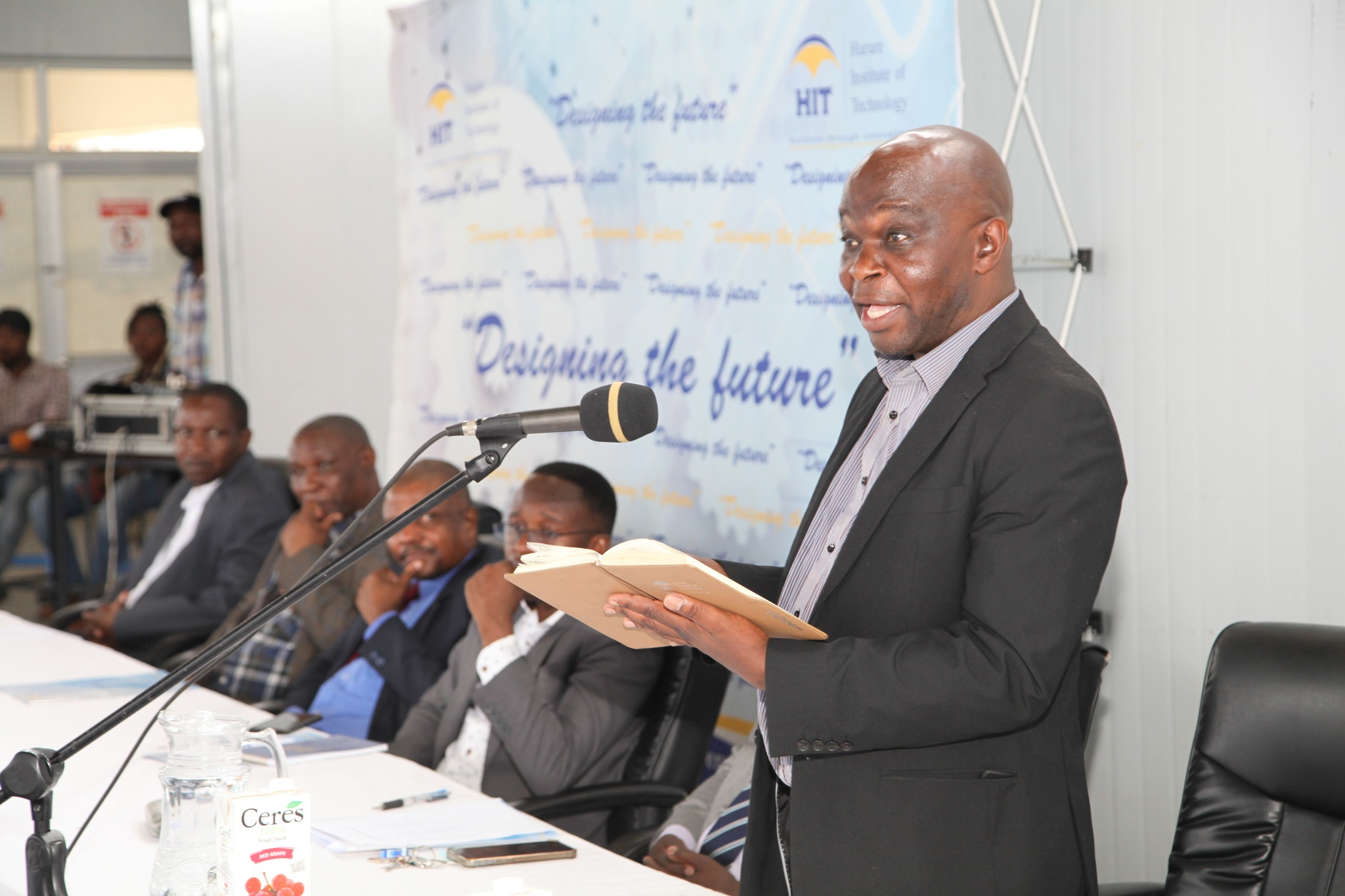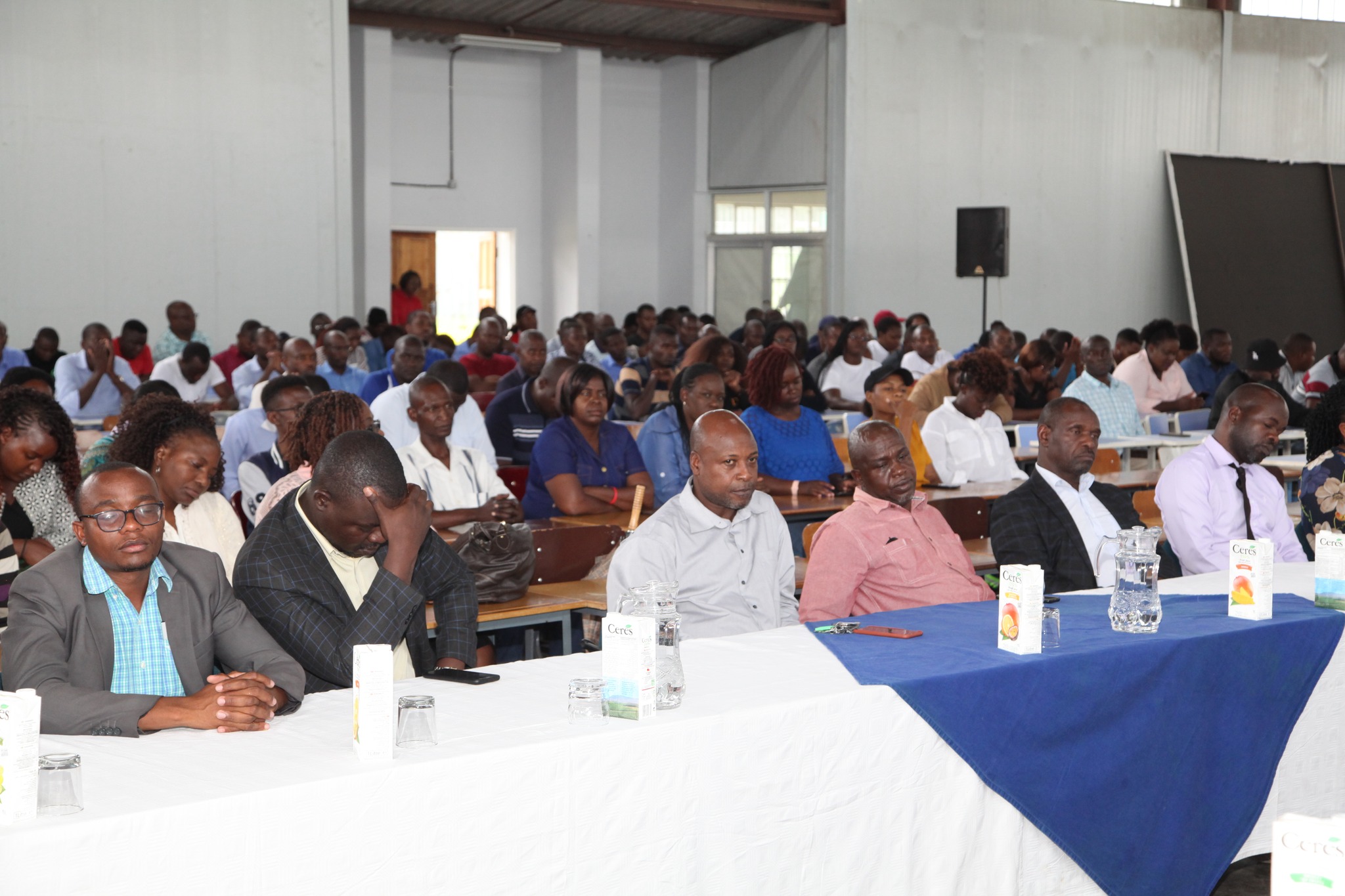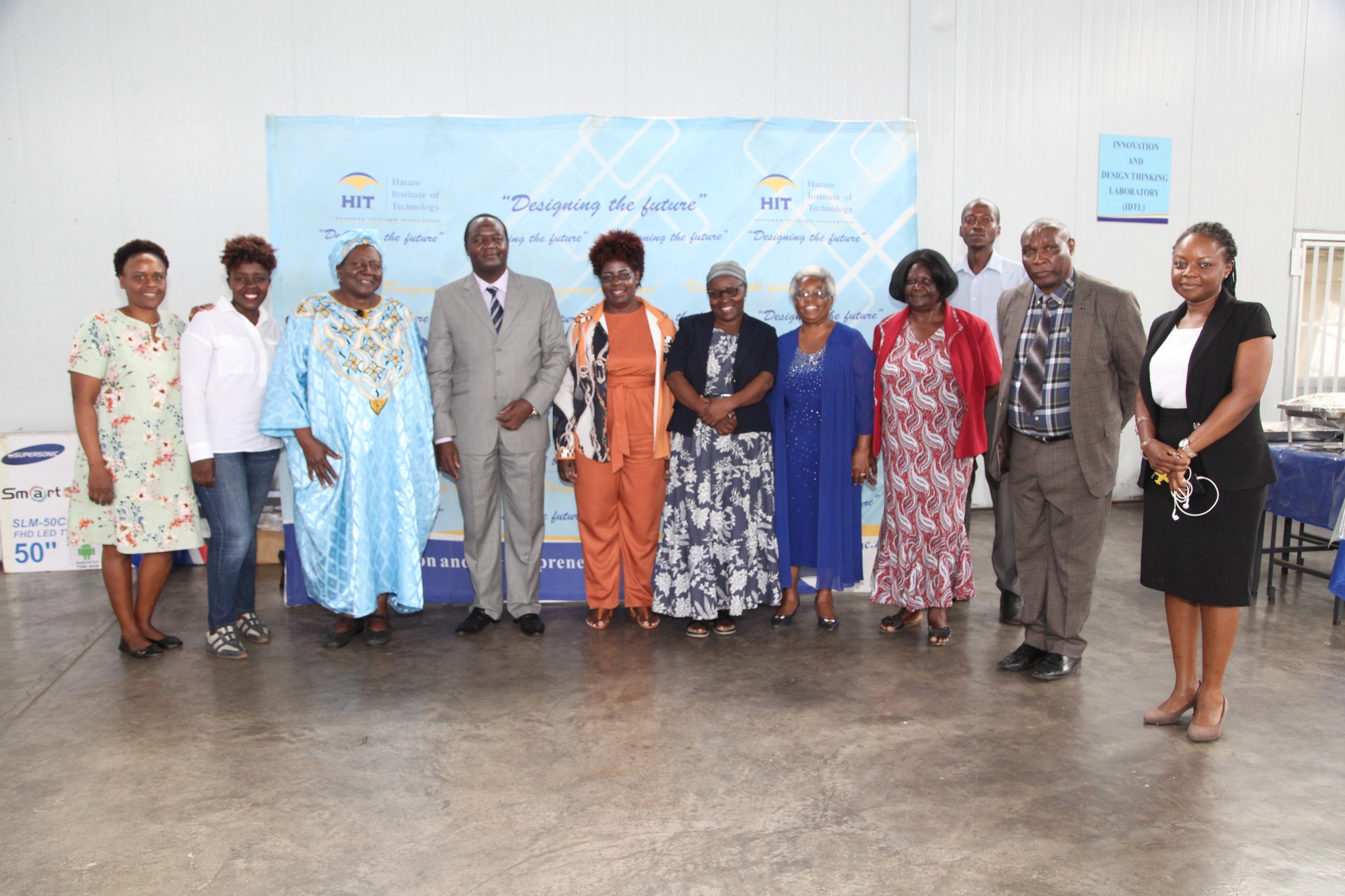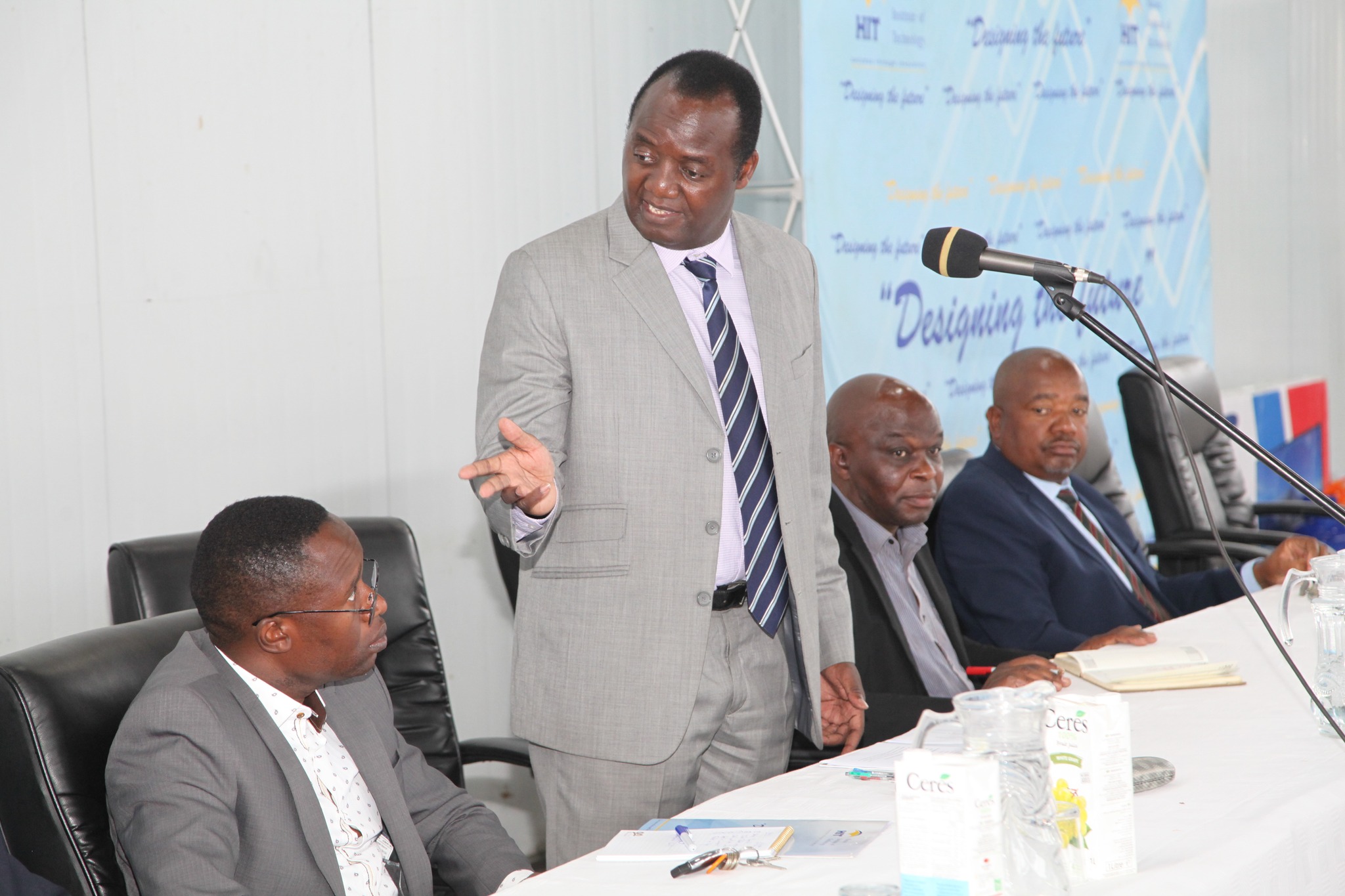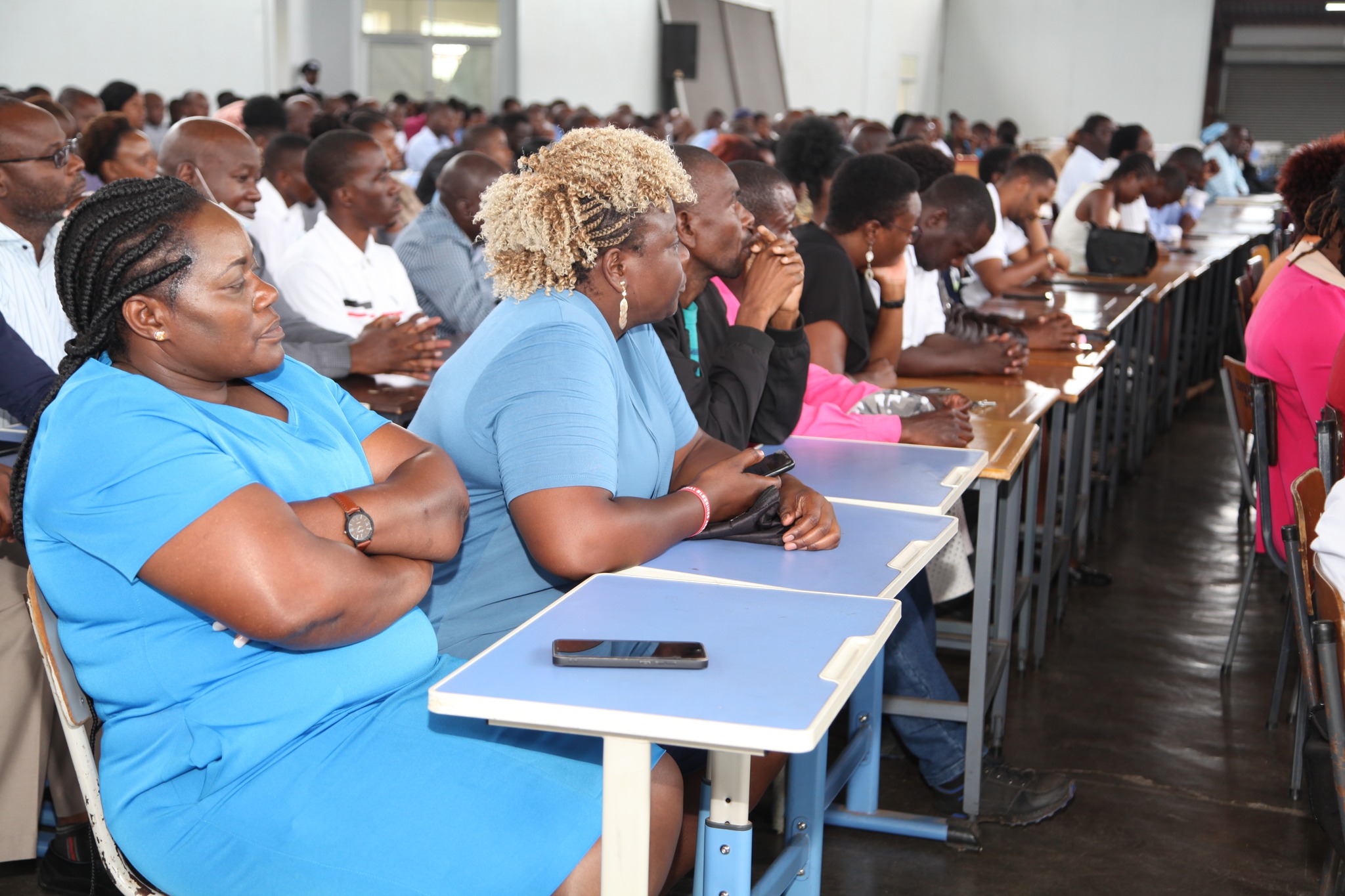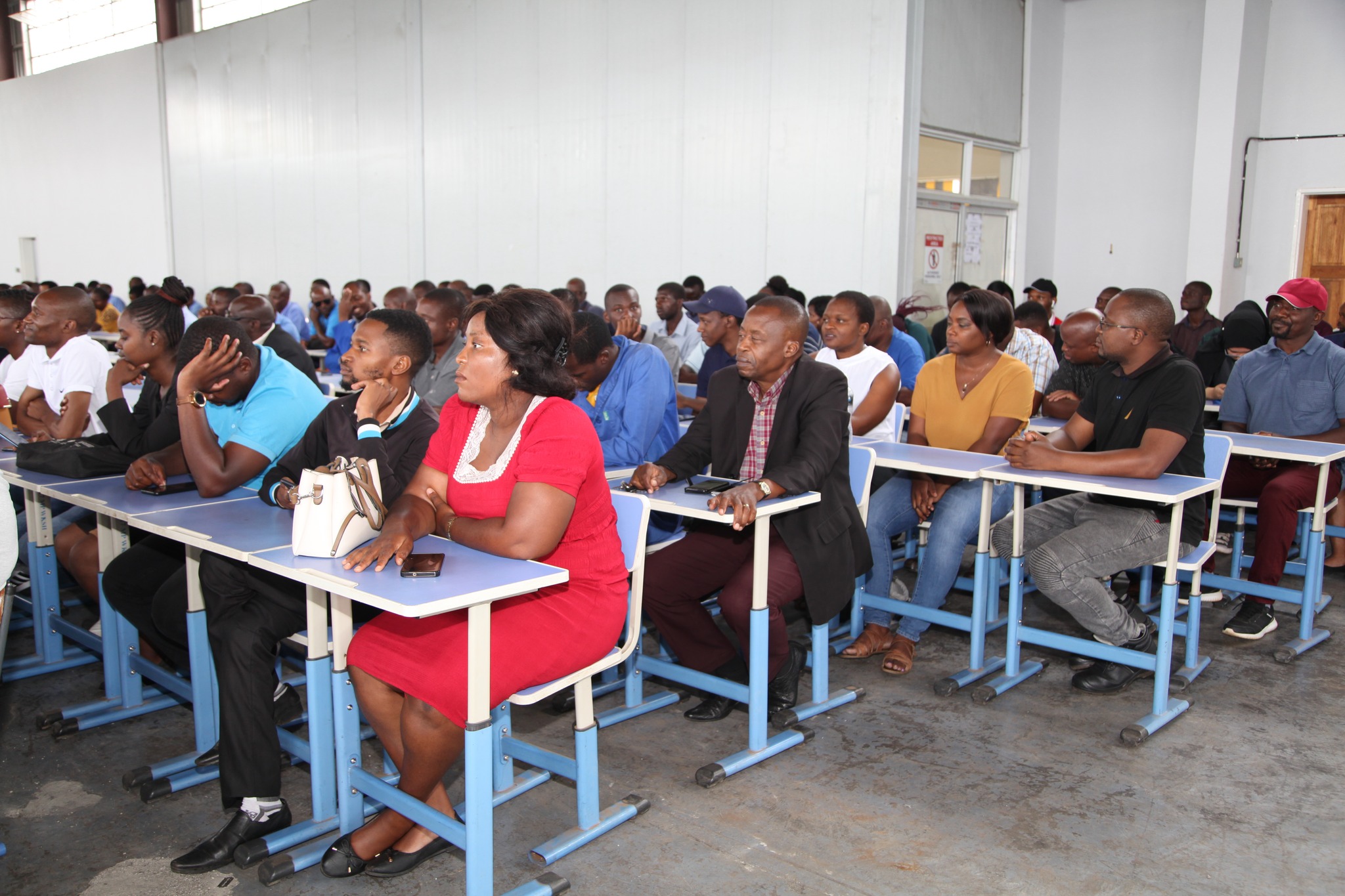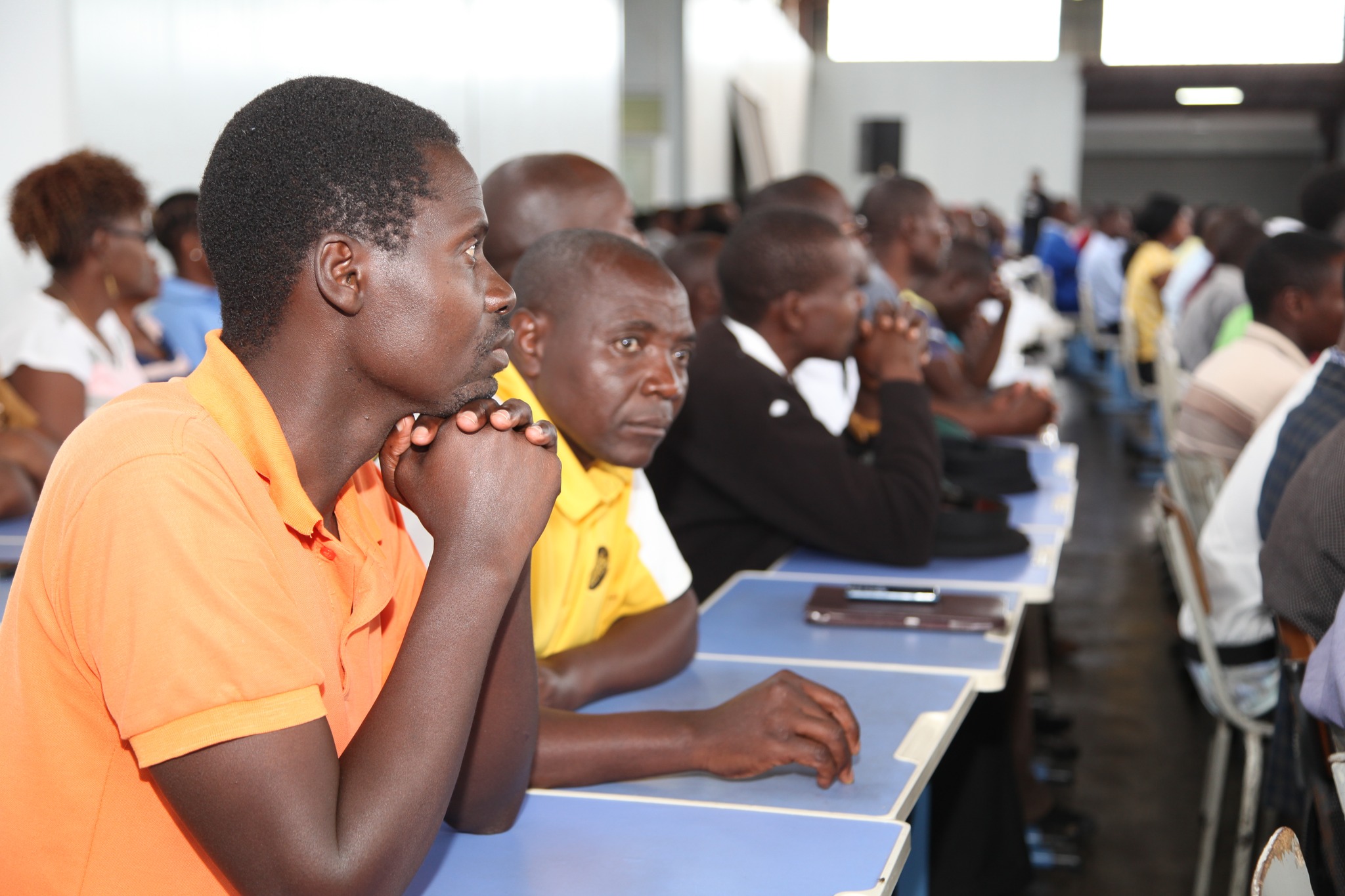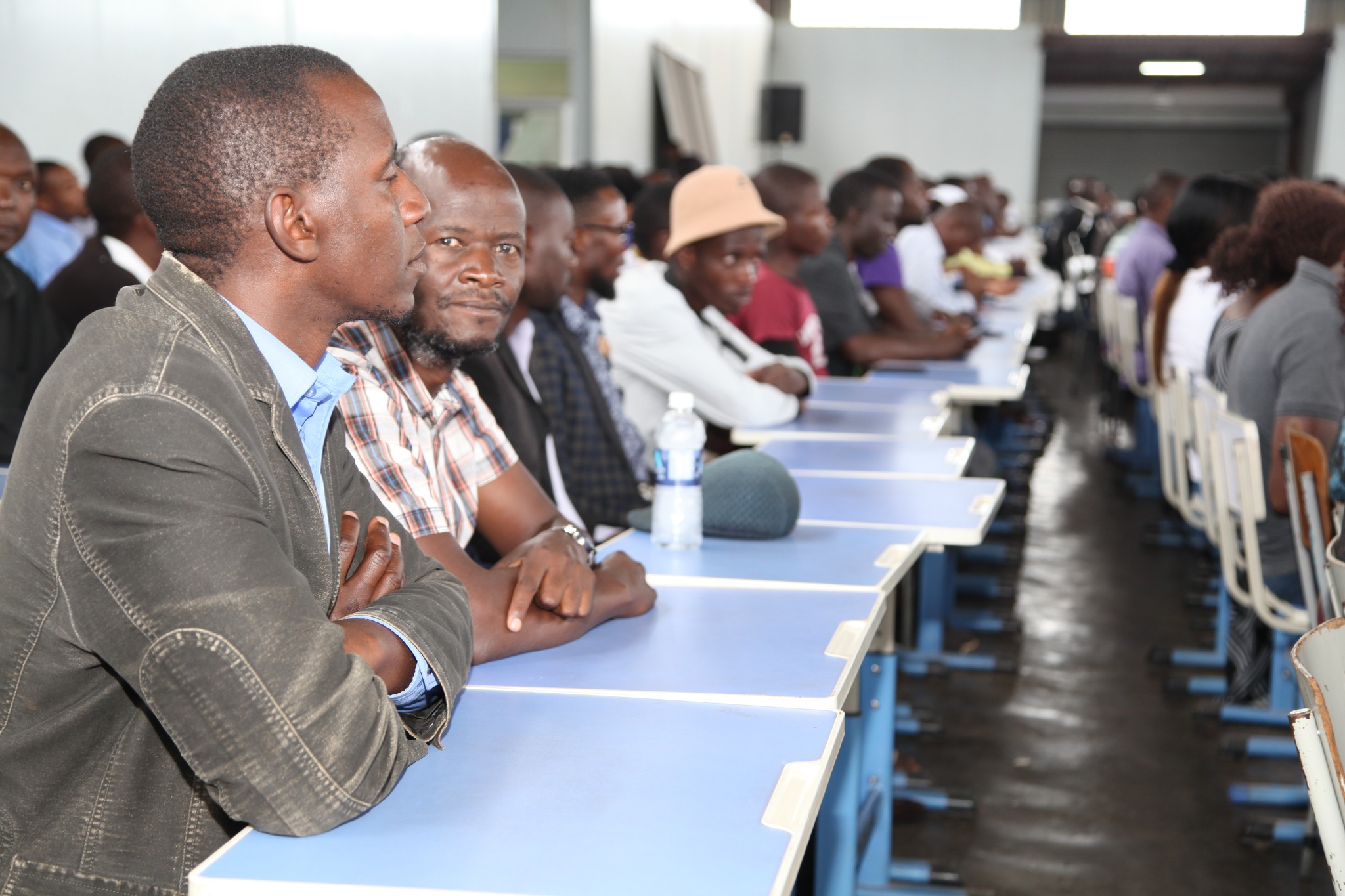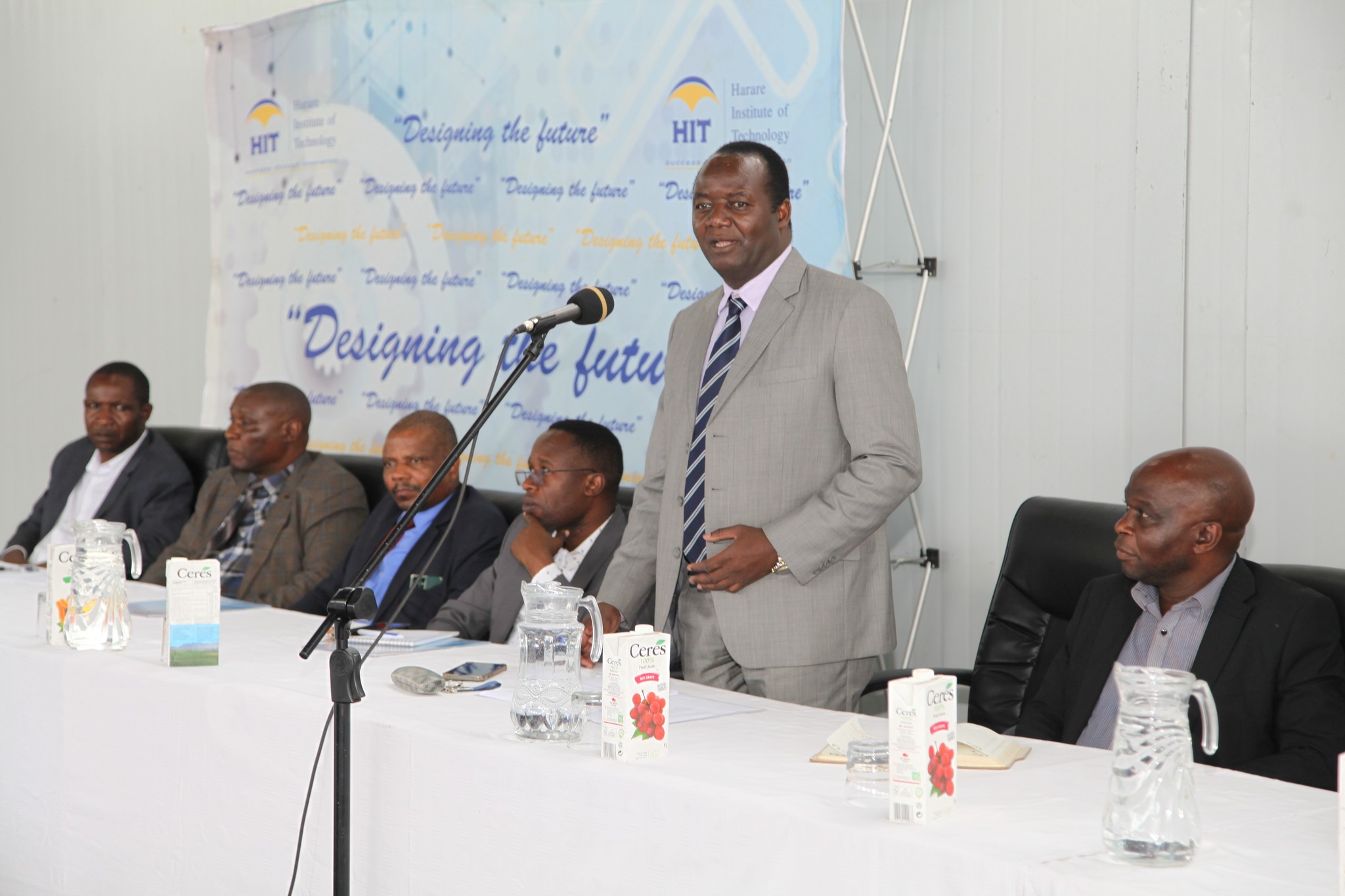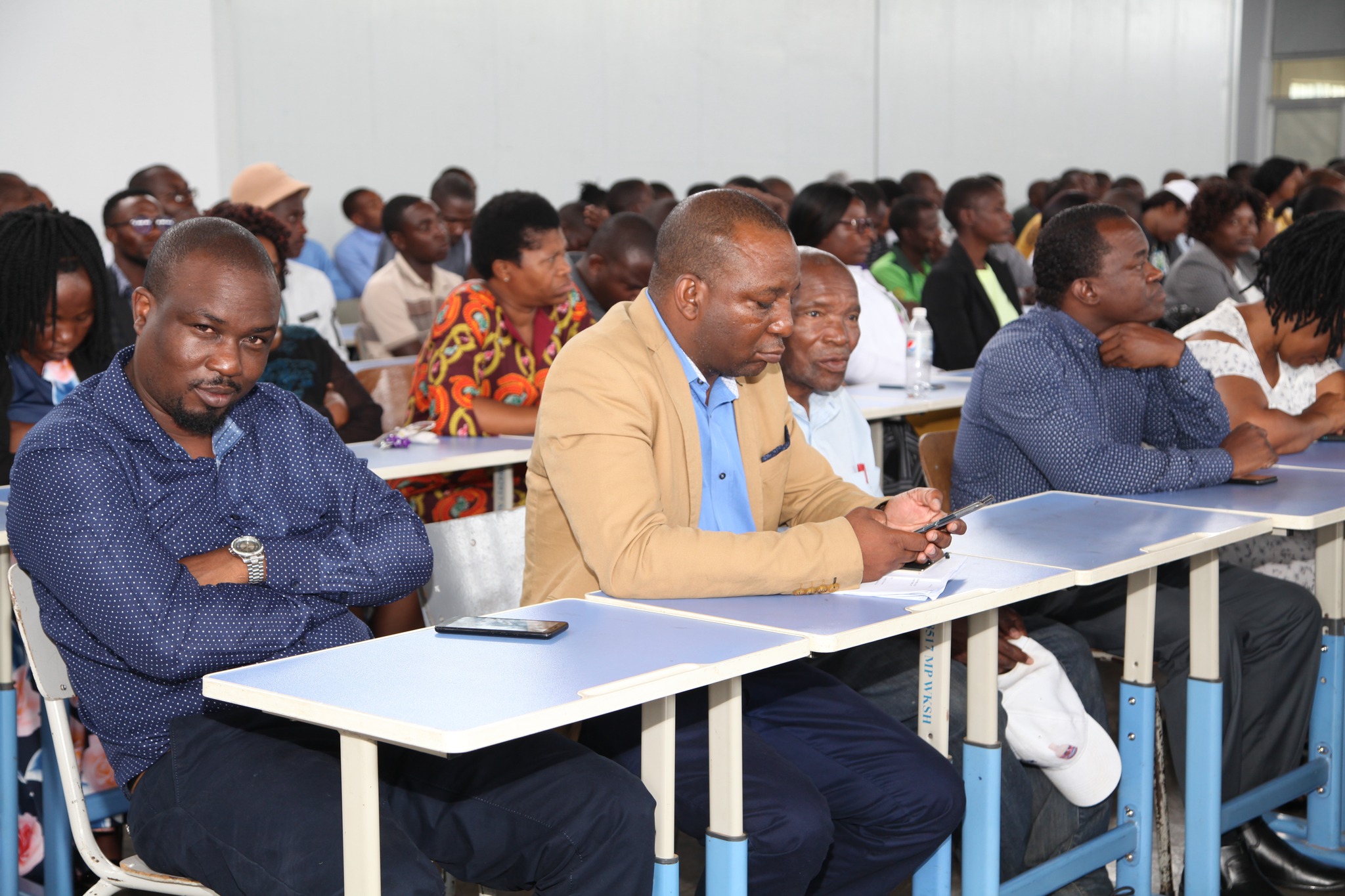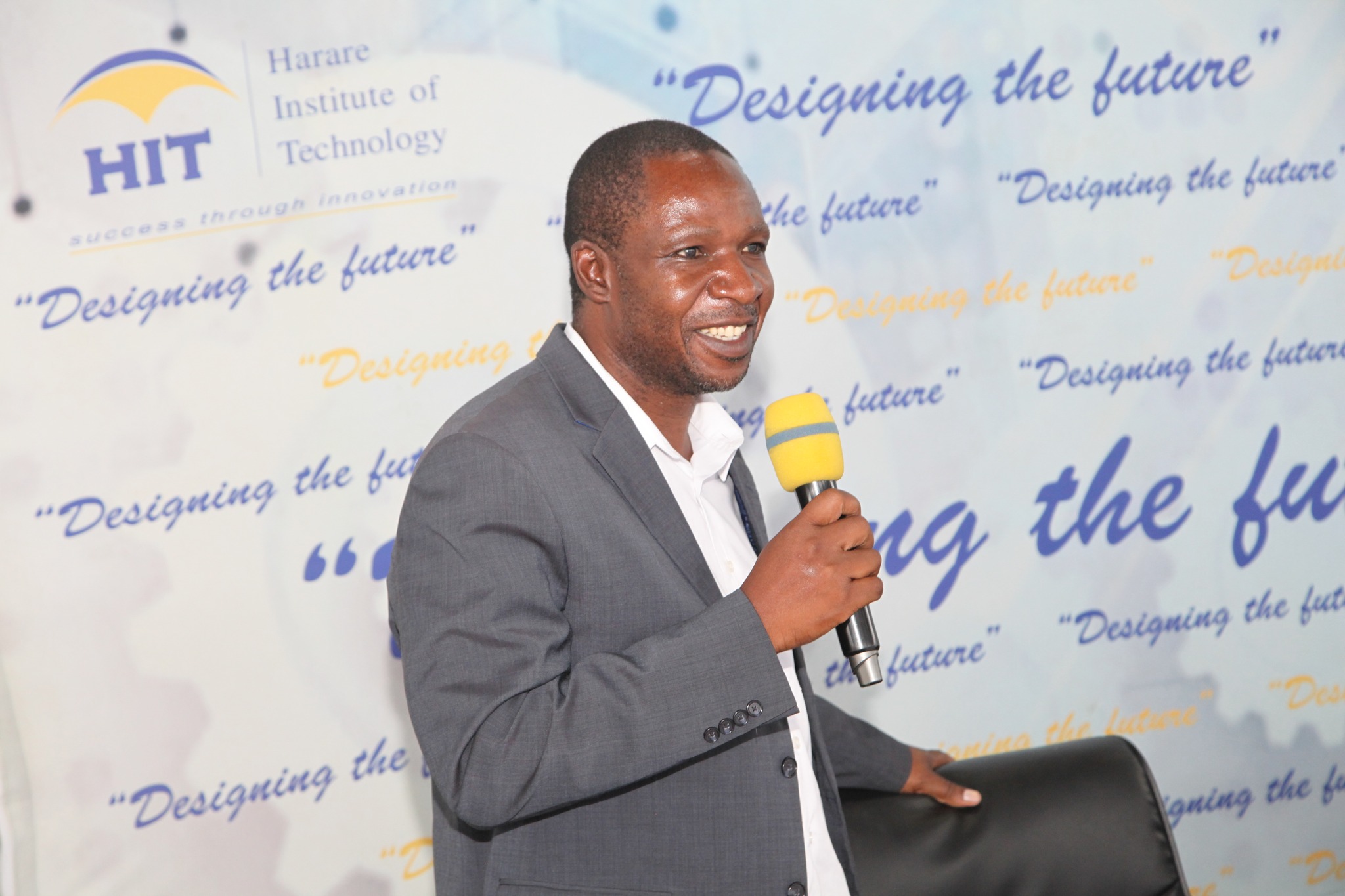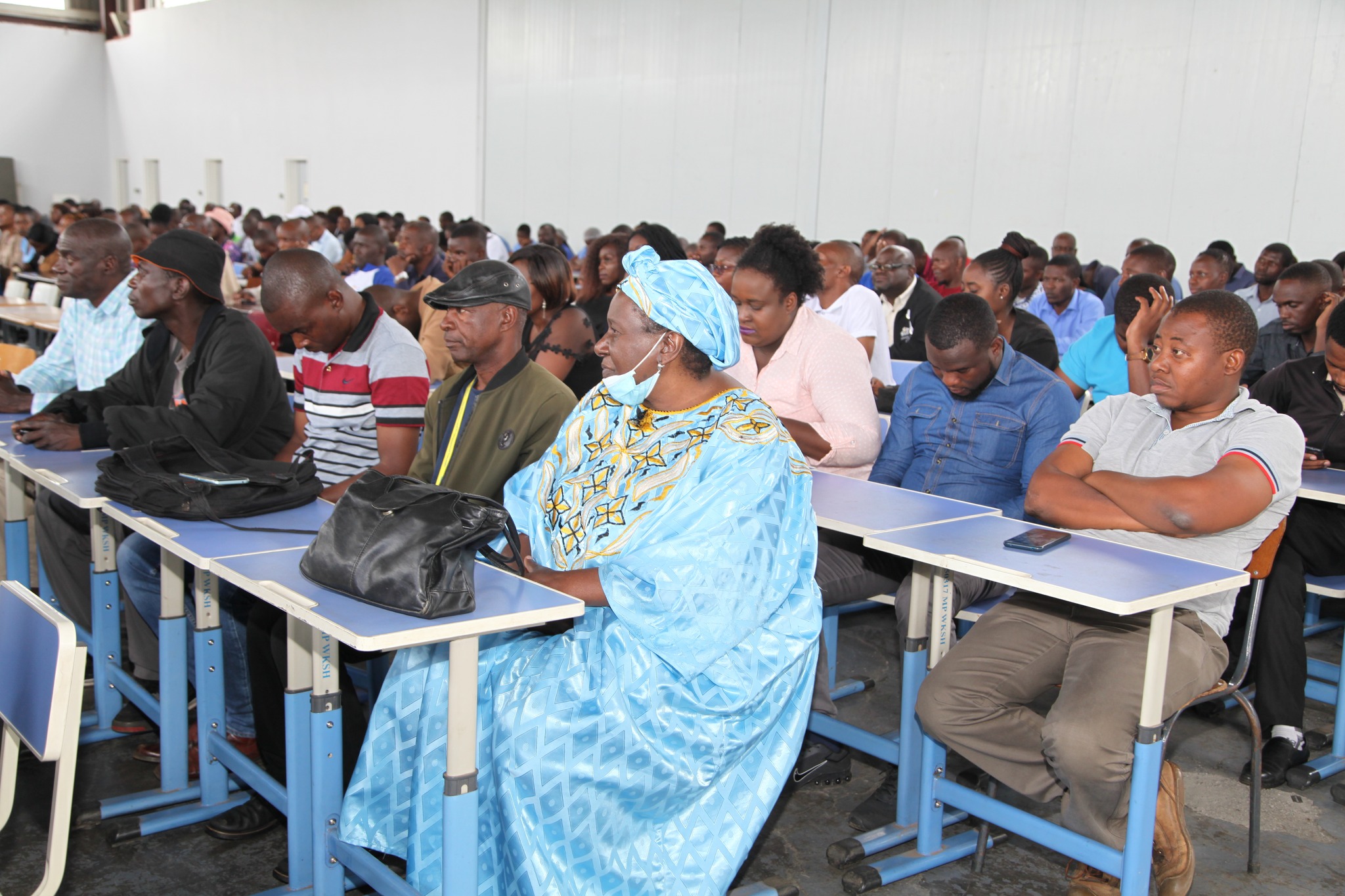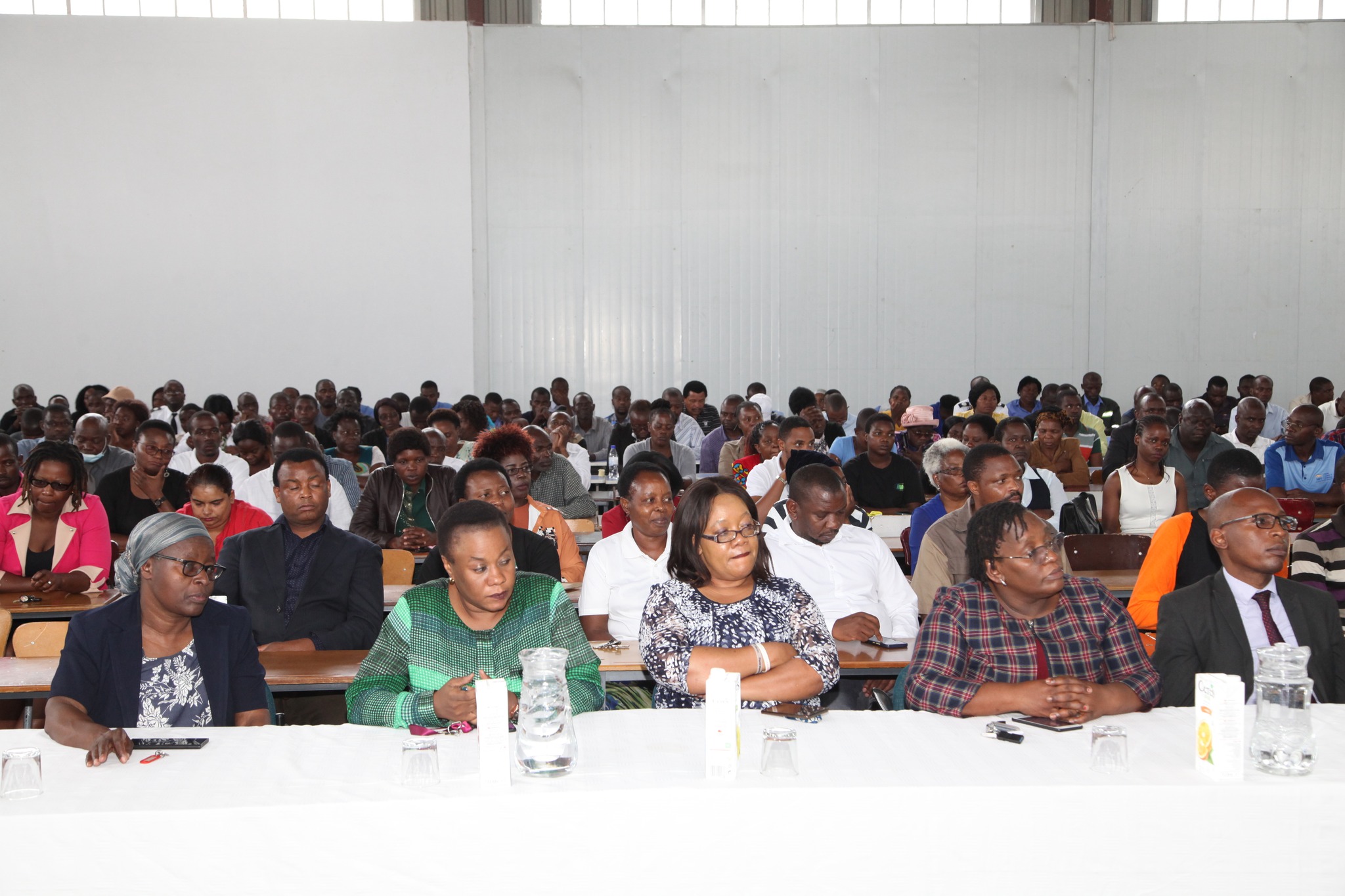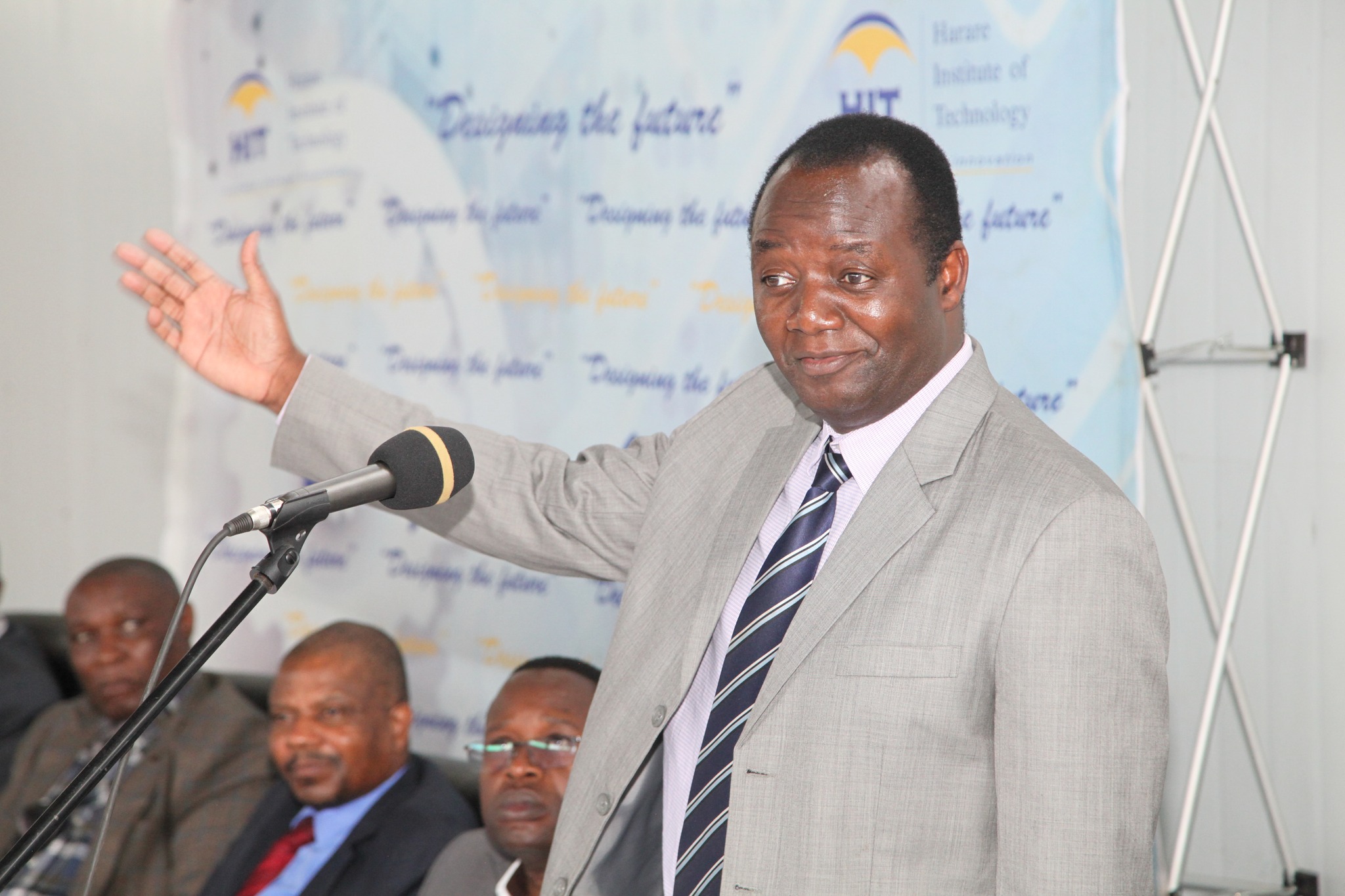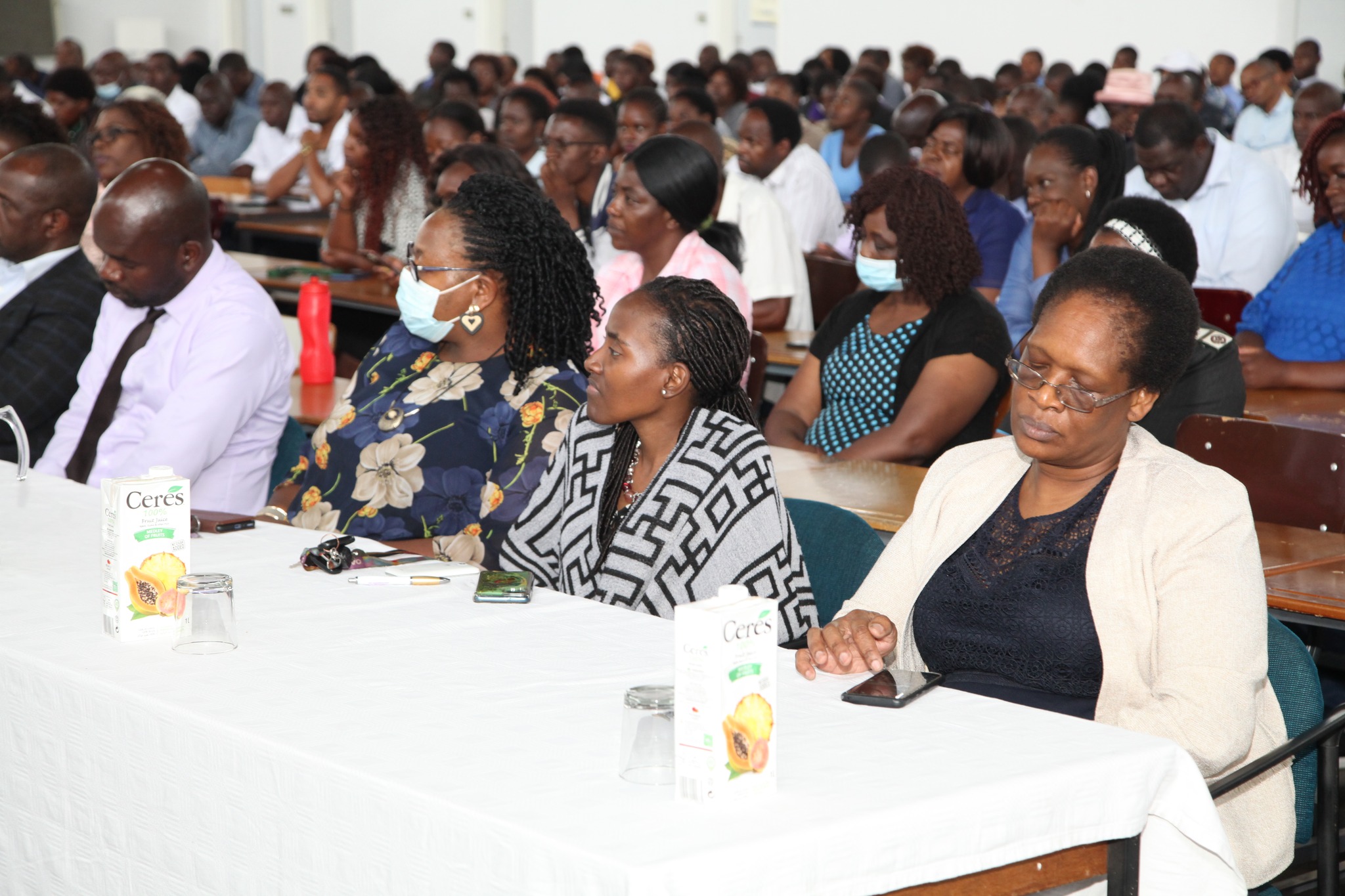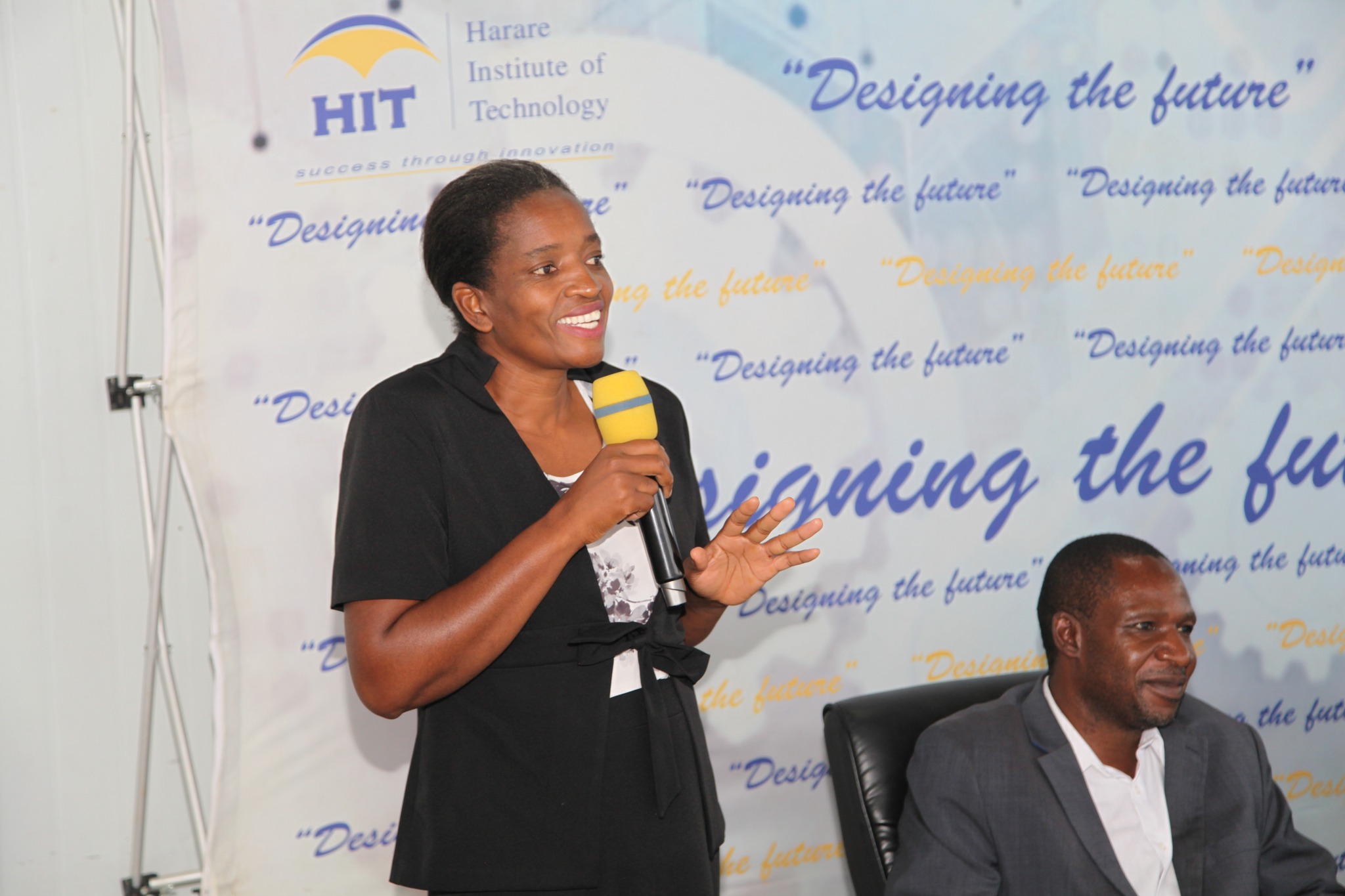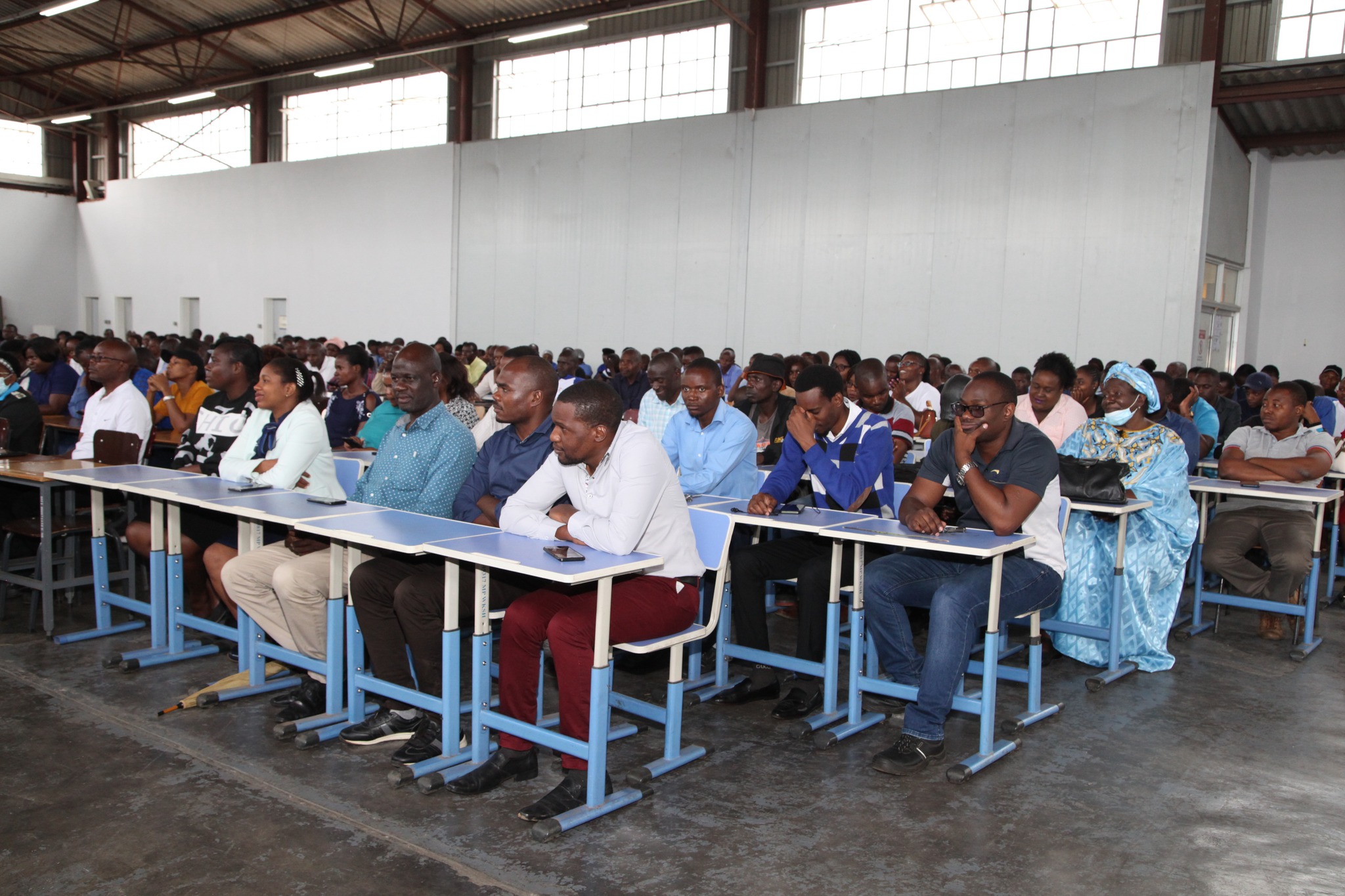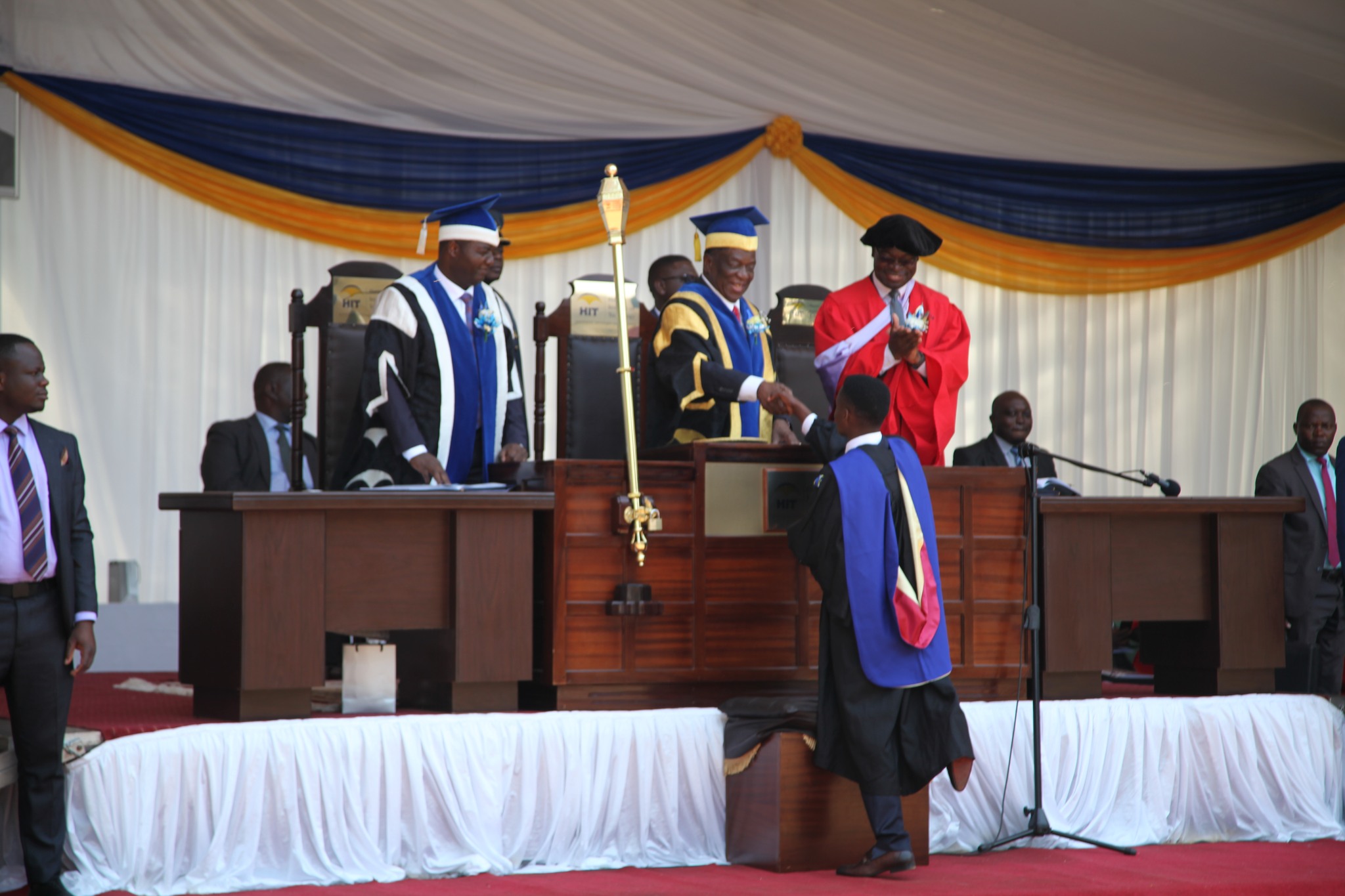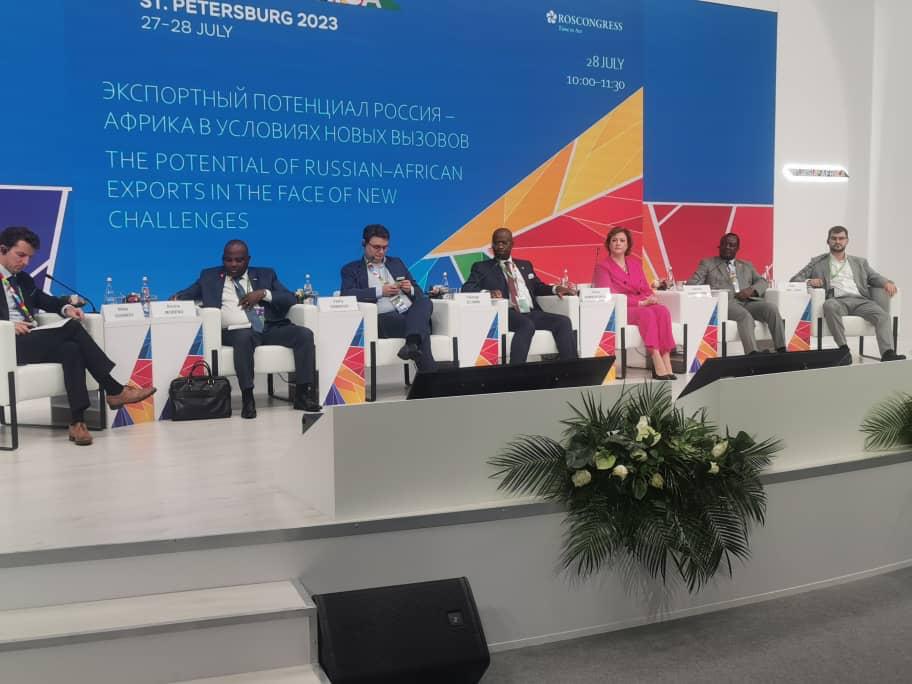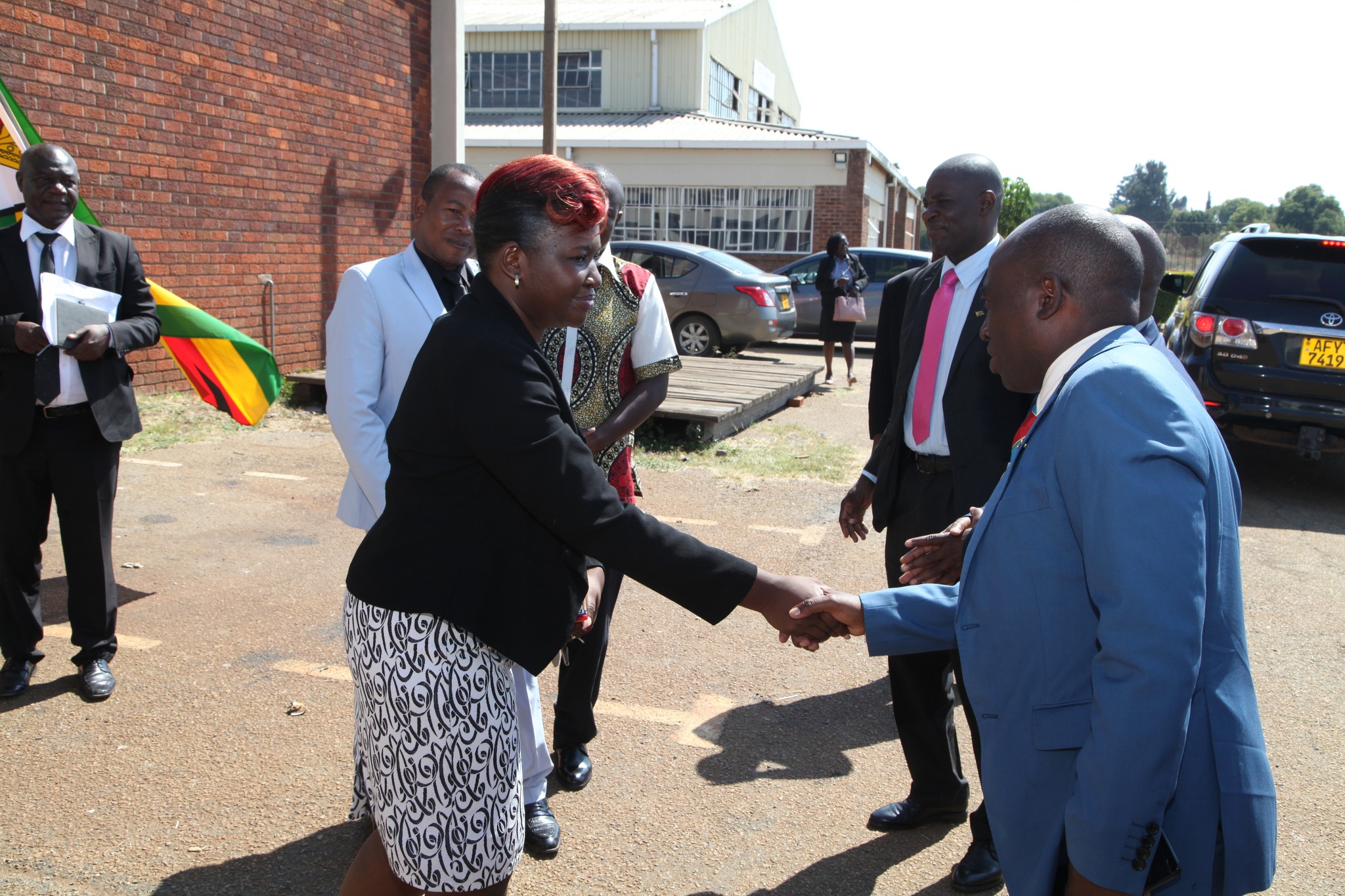The Vice Chancellor’s End of Year Luncheon was held on the 21st of December 2022 in the Campus Canteen and was attended by all HIT staff members including the Senior Management.
In his address on this occasion, the HIT Vice Chancellor Dr Engr Q.C Kanhukamwe took the opportunity to reflect on the road that the University has travelled and also provided an opportunity for reflection and self-introspection on everyone’s contribution to the realisation of the Institute mandate. “It also provides us with an opportunity to reflect on our personal lives and gives us the motivation for self-improvement in the coming year,” the Vice Chancellor said.
“I would like to applauded all the University’s staff and students who distinguished themselves and represented the Institute well on the local, regional and global map as recognitions were received for excellence in research and academia. The year 2022 has been a hectic one which was characterised by a harsh operating environment which continued to somewhat cloud the operations of the University throughout the whole course of the year. In response to this predicament, Management has continued to prudently deploy available resources to areas that are critical for the sustenance of university operations. Options to reduce dependence on government support will continue to be explored,” he added.
The Vice Chancellor also emphasised that the University’s Strategic Plan, Vision 2025 “Designing the Future” remains the key driver of all University activities and it gives everyone the zeal to move on. “The Plan is purposely linked to the National Development Strategy 1 (NDS1) and is enabling us to contribute in our own unique way to the attainment of Vision 2030. The Plan was further reinforced through the new performance management framework, which has seen a steep rise in accountable management,” said Dr Engr Kanhukamwe.
He also highlighted some of the major events of the year 2022, stating that through the Technovation Week held from the 25th -30th of September, the University showcased its research and innovation prowess. “This year’s edition had a hackathon, Public Life Sciences, Business and IT, Engineering as well as Biomedical Symposiums. All the programmes were well attended and sponsored including the Vice Chancellor’s Scholarship and Innovation Golf Tournament,” he said.
The Vice Chancellor also commended the University’s Internationalisation thrust as the Institute hosted a United States of America’s Full Bright specialist and the same country’s Embassy Public Affairs Officer to explore possibilities of further deepening relations with the American universities. “Myself and the Pro Vice Chancellor Research, Innovation and Commercialisation were part of a Ministerial delegation which visited the Russian Federation to explore areas of cooperation and collaboration,” he added.
He also talked about the 13th Graduation Ceremony which was held on Friday the 7th of October 2022 on campus where the President and HIT Chancellor Dr Emmerson Dambudzo Mnangagwa capped 538 graduates “Of the 538 graduands, 43,4 percent were female, while nineteen (19) graduands graduated with First Class degrees. The graduates were conferred with Masters and undergraduate degrees in various disciplines,” the Vice Chancellor said.
Speaking on Staff Development issues, the Vice Chancellor said as the University continue to grapple with the high staff turnover, it has increased its staff development initiatives to ensure that it remains with the necessary critical mass of staff capable of delivering effective tuition to our students as well contributing to the other pillars of Education 5.0. To that end, the University is recruiting 70 staff development fellows to cover for the gap left by departing staff.
“The University continues to support staff and their beneficiaries through the Tuition Waiver Facility for HIT programmes and the Loan Facility for external programmes. Two staff members were granted study loan during this Quarter in line with our human capital development programme. A total of 141 staff members accessed the National Building Society mortgage loans. The University did not record any cases of injury at work nor any COVID19 cases during period under review and staff continue to be encouraged to exercise safe work practices.
“The Medical Savings Fund Committee that was set up during the course of the year to look into the establishment of a Self-Managed Medical Savings Fund for HIT has since recommended the initial setting up of a Ring-Fenced Medical Savings Fund in 2023 through CIMAS and First Mutual Health,” the Vice Chancellor said.
The Vice Chancellor added that the University will continue to avail continuous development opportunities to its staff such as Workers Committee Training/induction for newly elected Workers Committee Officer holders, Sexual Harassment Awareness workshop, Secretarial in-house Training, ICT Security Incident Response Management and Open Access and Open Science scholarly communication models which were held during the course of 2022.
On academic programme development, the Vice Chancellor said the University submitted 19 postgraduate programmes to ZIMCHE for accreditation, inorder to increase its global competitiveness and recognition.
“HIT, will always stand ready to practically underwrite the realization of the collective aspirations and determination of Zimbabweans to achieve the Second Republic’s goal of an Empowered and Prosperous Upper Middle-Income Society by availing transformative and disruptive innovations, embracing emerging Fourth Industrial Revolution (4.IR) technologies for the creation of high-tech enterprises and training of highly skilled technical human capital to proffer solutions to the National Development. Our Institutional Research focus areas include Bio-fertiliser manufacturing, Lithium ore beneficiation, development of energy generation and storage systems, hemp and cannabis beneficiation, antibiotics production, development of medical devices, deep Machine Learning, Internet of Things, Cyber Security, Digital Economy, Materials characterisation and modelling, Nano powder development and characterisation, Breast cancer screening, Indigenous knowledge systems (IKS) and drug development for non-communicable diseases, Fraud Risk Management and Assessments, development of Data Discovery Methodologies and Techniques, Investigation of fraud and corruption, Money laundering and terrorism financing, Structured Finance – Asset Securitization, Alternative Payment Systems – Plastic money, SME Funding – Behavior-based Financing to SMEs, Banking – Financial Inclusion, Financial Risk Management and Credit Rating Models,” said the Vice Chancellor.
He also highlighted that the Technology Transfer Licensing and Commercialisation Centre (TTLCC) is working on several research and developments that has national significance. “The Innovation Hub is facilitating the industrialisation and commercialisation of the research and development activities of the Institute. It is also increasing the availability of commercialised, quality and locally developed goods and services that contribute to national development, economy and modernisation. The Innovation Hub is also supporting and ensuring that the survival of young companies and concepts, to become minimum viable products, services and companies with sustainability and regional impact. It is also providing a repository of innovations and intellectual Properties (IP) that catapults industry into advanced and enhanced industrialisation through technology transfer and licensing,” the Vice Chancellor said.
Dr Engr Kanhukamwe also mentioned the Limestone Beneficiation Project, adding that the plant design has been completed and raw material characterization is being finalized for the production of acetylene at Verify Engineering in Mutare which requires Calcium Carbide. “As a result, the University’s Chemical Processing Systems Department and the Environmental Management, Renewable Energy and Climate Change (EMRECC) Research Centre is exploring the possibility of producing the raw materials in Zimbabwe. The current activities involve characterization of different sources of limestone in Zimbabwe. It is projected that the production plant of 1800KVA producing ten tons per day will require US$2.5M with a setup time-line of four months which will result in a payback of 36 months,” he said.
“The Lithium Ore Beneficiation Project aims to produce battery-grade lithium carbonate from local lithium-bearing ores. This will be a miniaturized pilot plant for the production of battery grade lithium from our local mines. Our Chemical Processing Systems Engineering Center has carried several lab test that now requires construction of a testing pilot plant with target of 100Kgs per month. We are currently finalizing the tests for the production of Battery Grade Lithium Carbonate. The development of the pilot processing plant with a capacity of 100Kgs per month is set to commence soon. The return on investment of the Pilot Plant is 48 months. A pilot production plant has been designed. A joint Venture with Zimbabwe Mining Development Company has been established to further pursue the issue including mining claims,” said the Vice Chancellor.
Dr Engr Kanhukamwe also commended the University’s staff and students for distinguishing themselves, and representing the Institute well on the local, regional and global map as the University received recognition for the Best Innovative Public Institution Award at the Public Sector Management Awards held at the Monomotapa Hotel on the 16th of September 2022. The awards recognise outstanding performances in public administration.
The Harare Institute of Technology was also recognised as the Growing Digital Company at the 9th edition of the Zimbabwe ICT Conference and Awards in April 2022. At the same event the Vice Chancellor was recognised as the leading digital CEO of the Year and the Engr Lodrina Masiyazi was judged as the Best ICT leading Woman and the Girl Child Motivator.
The University also scooped the first prize at the 2022 SAYWHAT National Universities Quiz Challenge held in the first week of August 2022 in Harare at the Studio of Choice. The HIT team walked away with a floating trophy, gold medals, certificates and laptops. A total of 12 Universities participated in the National Quiz Competitions.
Trevor Randinyu, a Part 3 student from the Biotechnology Department was the overall winner at the 2022 Business Plan Competition, where he walked away with the first prize of USD5 000. His business idea was on the production of a late treatment Organic Formula to cure the January disease (Theileriosis) affecting cattle.
SmartZim Private Limited, a business start-up of MTech in Strategy and Innovation final year students providing a solution to queuing in Zimbabwe, won the inaugural Venture Lab (V-Lab) business pitch competition organised by the Harare Institute of Technology’s (HIT) School of Business Management Sciences. Through a mobile application “Smart-Que Mobile App” SmartZim allows Zimbabweans to join any que they want at the comfort of their homes or offices by just a click of a button on their smartphones.
Two final year students from the Harare Institute of Technology’s School of Information Science and Technology participated at International Cybersecurity Challenge 2022 in Athens, Greece from the 14th to the 17th of June 2022. Nigel Chasiya and Mitul Narotam from the Department of Information Assurance and Security were among Science 16 students from six African countries who took part in the International Cybersecurity Competition representing the Africa Region to International Cyber Security (AFRICC) hosted by ENISA with seven regions taking part at the Stavros Niarchos Foundation Cultural Center (SNFCC) in Athens, Greece.
HIT’s former Director of Academic Programmes Mrs Nyasha Fadzai Thusabantu-Shonhiwa scooped the prestigious ZIM WOMEN ROAR 2021 Award for the Most Outstanding woman in Academia for noticeable contribution in technology and Big Data Analytics within corporates, academic institutions and sector conferences. The award is in recognition of her sterling work in capacity building for women in technology and in Big Data Analytics. She has become a household name in Zimbabwe in a niche field in technology that was dominated by men. Mrs Thusabantu-Shonhiwa trains women in corporate organisations, non-governmental organisations, academic institutions on technology development and Big Data Analytics.
The HIT Boost Fellowship Club also scooped the 3rd Prize in the 2021 Delta-BOOST, “Make A Difference Innovation Challenge” after presenting their Agriplasts project that focuses on the use of hydroponic systems in farming. The project makes use of Chibuku traditional beer containers to construct a greenhouse for farming purposes, thereby addressing some of the Sustainable Development Goals (SDGs). The Club’s business model is centred on strategic partnerships which help in plastic collection and waste management.
The University was also awarded the Best Managed Government Institute of The Year Award at the Harare Metropolitan Province Excellence Awards held on Friday 09 December 2022 at the Harare International Conference Centre.
“The University also escalated its community outreach initiatives through providing training and consultancy services to various external constituents in the areas of digital forensics, cyber security, PLC trainings (external Industry targeted event), LADS Budget management module training (Ministry of Local Government event targeted at all 92 councils nationwide), solar photovoltaic systems installations among others,” the Vice Chancellor said.
On infrastructural development, Dr Engr Kanhukamwe said the construction of the Multi-Purpose Laboratory Plaza is in progress and the University is now aggressively mobilising resources for the construction of its Hi-Tech Development Valley project in a bid to effectively achieve its mandate of commercialising technology for Zimbabwe’s rapid industrialisation. “This mandate will be mainly fulfilled through the provision of adequate physical structures and state-of- the-art equipment that will provide facilities for the successful accomplishment of the University’s growth. The project will see many factories shells being erected at the University’s land along Coventry road through a Private Public Partnership (PPP) model,” he said.
The Vice Chancellor also took the opportunity to bid farewell to four members who are retiring from service. These are Mr Lenard Mukumba, a Technical Instructor in the Electronic Engineering Department, Mrs Elizabeth Kabasa, an Assistant Registrar in the Admissions Office, Mrs Mary E. Samupindi, the Executive Assistant to the Vice Chancellor and former HIT Registrar and Professor Lillian Tichagwa, a senior lecturer in the Polymer Technology and Engineering Department.
“We want to acknowledge and thank you for all your efforts and service to the Institute. You are now leaving a legacy and sound footing for generations to come,” the Vice Chancellor said.
In his 2023 Outlook, the Vice Chancellor said our work in 2022 was located within the greater national vision and aspirations for the higher education sector as outlined by His Excellency, President Emmerson Mnangagwa, at his first meeting with University Vice Chancellors in January 2022 where he outlined the objectives for Universities to carve out their role in national development. The President said our universities should provide education and skills relevant to Zimbabwe’s economic development challenges, invent and promote technologies which will benefit present and future generation, recognise our industries and the agricultural sector and agro-based value chains as an integral part of the economy, promote Intellectual Property and play a role in the preservation of national identity and cultural heritage
In conclusion, Vice Chancellor Dr Engr Kanhukamwe reminded everyone that we are all duty bound to respond to the national vision and aspirations and we remain committed to the same in all areas of our endeavours. “HIT remains a formidable force in Zimbabwe’s higher education terrain and through our collective effort we stand to achieve even greater results as we effectively discharge our mandate. We want to be big on our impact to the nation.
“I wish you all a very restful holiday, hoping that next year will be better. Merry Christmas to you all and wish you a very prosperous New Year,” he said.
The HIT Workers Committee Chairperson Ms. Siphila Maphosa also took the opportunity to address her coworkers saying the year 2022 had not been easy but HIT staff did very well to help the Institute to fulfill its mandate. “We appreciate the Christmas gift from our employer and thank you all for the effort and dedication to duty,” she said.

